Arts & Entertainment
Oscars so safe
Fraser wins for playing gay in ‘Whale,’ but night belonged to ‘Everything’
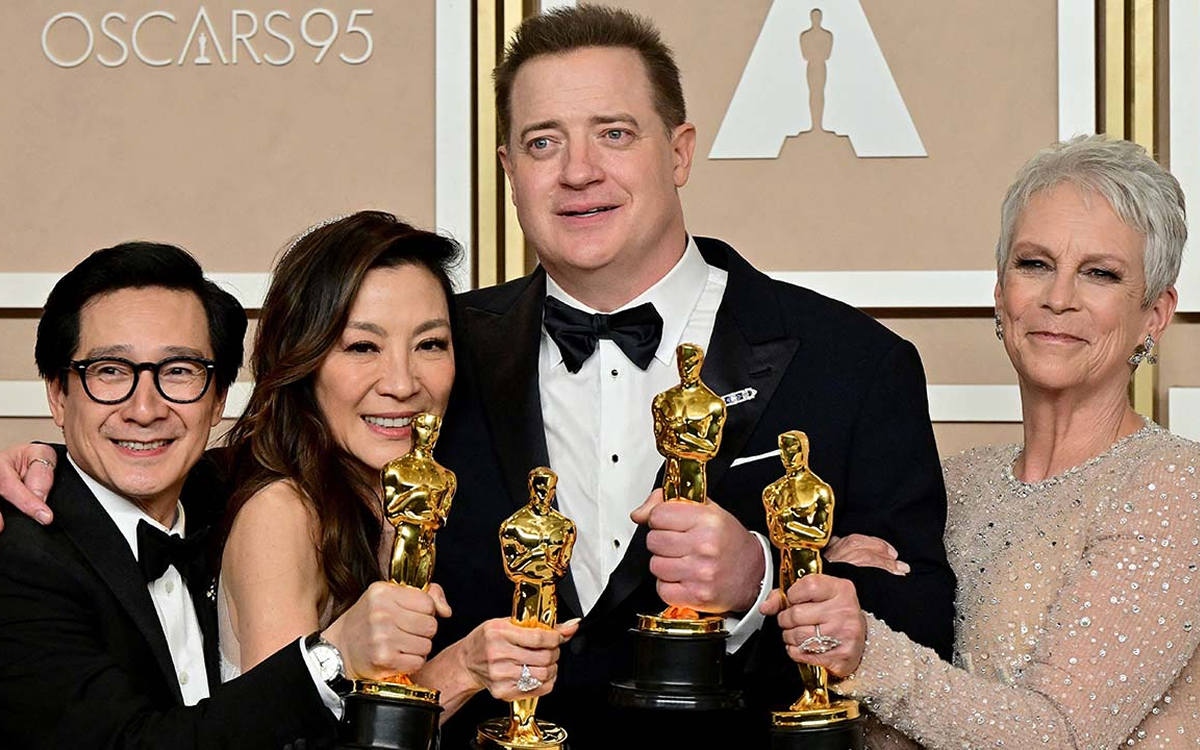
It must be said that the 95th Annual Academy Awards were doomed to be a letdown before they ever started. After all, last year’s ceremony included a physical assault on a presenter by an A-lister – who then proceeded to win the Best Actor award! Even by rewarding an indie underdog for becoming a populist hit by giving it a record-setting sweep of the major categories, how could this year’s Oscar broadcast hope to top that?
Snarky digs aside, the Academy had already squandered a lot of its good will by announcing a slate of nominees that seemed a step backward in its recent efforts toward diversity. While 2022’s honors included overdue recognition for Asian American talent, the notable shortage of people of color or LGBTQ individuals among the nominees had already led many observers to write off this year’s Oscars as just another backsliding return to the all-too-familiar status quo; and when the broadcast itself finally happened, the Jimmy Kimmel-led ceremony played it so safe that the proceedings seemed dull even in comparison to other Oscar shows – and as anyone who’s ever watched one will certainly attest, that’s saying a lot. It’s almost as if, after a few years of pushing the boundaries, controversy, and conservative backlash over a perceived capitulation to “woke” sensibilities had pressured the Academy into a return to business as usual.
In fairness, that assessment feels a little unreasonable, considering that “Everything Everywhere All at Once” – a movie in which the survival of multiple universes hinges in no small part on a mother’s acknowledgment and acceptance of her child’s queer sexuality – had enough critical and popular momentum going into the ceremony to make its claiming of the top prize all but inevitable. The popular surprise indie sci-fi hit claimed that prize and more – including Best Actress for cinema icon Michelle Yeoh and supporting honors for co-stars Ke Huy Quan and Jamie Lee Curtis, as well as wins in the Direction and Original Screenplay categories for filmmakers Daniel Scheinert and Daniel Kwan – to take home an impressive seven of the 11 awards for which it was nominated; child-actress-turned-celebrated-filmmaker Sarah Polley, while shut out of the Best Director category for “Women Talking” in favor of an all-male roster of nominees, took the prize for Best Adapted Screenplay nevertheless; Best Actor winner Brendan Fraser, while himself not gay, earned his victory for a deeply humanizing portrayal of a gay man and is a very public survivor of alleged same-gender sexual harassment in the workplace – a reminder that #MeToo is not just a “women’s issue” but a cause encompassing even those in positions most seemingly insulated from such abuses.
All these winning films – as well as numerous others among their fellow winners and nominees –are queer-inclusive, if not directly queer-focused. Though other queer nominees – like Belgian director Lukas Dhont’s “Close” for Best International Feature and Laura Poitras’ Nan Goldin profile “All the Beauty and the Bloodshed” for Best Documentary Feature – failed to take their respective categories, the overall queer presence represented in this year’s nominated films is too widespread and deeply integrated to be ignored.
Still, in today’s very divided cultural atmosphere, such equivocating overtures toward a more equitable Oscar playing field can undeniably feel like hollow, insincere tokens, convenient to bestow on their non-LGBTQ recipients thanks to the more universal appeal of the movies that earned them a place at the table; and while the wins for Yeoh and nostalgic Gen X fan favorite Quan represented historic firsts for Asian American inclusion, nominations for Viola Davis in “The Woman King” and “Till” star Danielle Deadwyler as Best Actress, or for Jeremy Pope and Gabrielle Union of “The Inspection” as Best Actor and Supporting Actress, respectively, would have gone a lot further toward proving the Academy’s commitment to true diversity than its loading of the stage with an ostentatiously multi-ethnic roster of presenters – an overcompensation tactic that becomes increasingly obvious every time they deploy it.
As for the ceremony itself, there were some highlights, such as Lady Gaga, with a face freshly scrubbed of her red carpet makeup, passionately delivering a performance of nominated song “Hold My Hand” from “Top Gun: Maverick,” or fellow pop diva Rihanna’s rendition of “Lift Me Up” from “Wakanda Forever” – not to mention the wildly entertaining production number staged to the eventual Best Song winner, “Naatu Naatu” from the Indian blockbuster “RRR.” So, too, were there memorable moments from among the presentations, like the infectious wave of authentic joy that met Quan’s and Curtis’ early wins or Fraser’s genuinely choked-up, self-effacing acceptance speech, as well as a few polite-but-pointed barbs and zingers aimed at various low-hanging political targets – and, of course, at Will Smith – along the way. Even so, the atmosphere of the evening was decidedly contained, marked by a frankly uncharacteristic effort from Hollywood’s elite to remain on their best behavior and avoid ruffling too many feathers – and while that may have made for an evening relatively free of controversy, it also resulted in an Academy Awards show arguably far less entertaining than some of the notoriously embarrassing debacles they’ve produced in past years.
With all that in mind, it’s easy to see Sunday night’s Oscar ceremony as just another validation for people who loathe the Oscars. Yet while the Academy might seem to be some monolithic organization handing out decrees, its awards are bestowed by a voting body made up of individual film professionals, each with their own opinions about who the winners should be, and many of whom likely feel no obligation toward following whatever cultural or political agendas the organization itself may be hoping to advance. That means that whatever good intentions it proclaims itself to have, the Academy will always be little more than a barometer – and, perhaps, a convenient scapegoat – for an industry that perpetually drags its feet. After all, can we really blame the Academy for failing to recognize queer-centric and queer-friendly content – or content centered on any demographic that isn’t white, male, and heterosexual – when there is still so little of it to choose from among the award-worthy movies the mainstream continues to offer us?
There’s no right answer to that question, perhaps, only food for thought as we continue to press Hollywood to do better; that’s the only way we’ll ever see wider inclusion on the big screen. In the meantime, it’s important to remember that deciding the “best” of anything is always an entirely subjective exercise, which means that the Oscars are ultimately less about gauging quality than they are about measuring cultural attitudes toward the content – and the way that content is presented – that the movie industry produces. That makes awards like the Oscars an invaluable tool, perhaps, but does that mean it’s worth putting up with all the shallow, facile, tribalistic conversation that inevitably happens around them?
In a year like this one, when the Academy honors films that uplift and celebrate outsiders, underdogs, and ordinary people, that emphasize kindness and compassion, that allow for resolution and redemption without destructive conflict or violence, then it feels like the answer is yes.
The complete list of winners is below:
Best Picture: “Everything Everywhere All at Once”
Best Actress in a Leading Role: Michelle Yeoh, “Everything Everywhere All at Once”
Best Actor in a Leading Role: Brendan Fraser, “The Whale”
Best Director: Daniel Kwan and Daniel Scheinert,“Everything Everywhere All at Once”
Actress in a Supporting Role: Jamie Lee Curtis, “Everything Everywhere All at Once”
Actor in a Supporting Role: Ke Huy Quan, “Everything Everywhere All at Once”
Best Animated Feature Film: “Guillermo del Toro’s Pinocchio”
Best Original Song: M.M. Keeravani and Chandrabose,“Naatu Naatu,” “RRR”
Best Original Screenplay: Daniel Kwan and Daniel Scheinert,“Everything Everywhere All at Once”
Best Adapted Screenplay: Sarah Polley, “Women Talking”
Best International Feature Film: “All Quiet on the Western Front”
Best Documentary Feature Film: “Navalny”
Best Cinematography: James Friend, “All Quiet on the Western Front”
Best Visual Effects: “Avatar: The Way of Water”
Best Costume Design: Ruth E. Carter, “Black Panther: Wakanda Forever”
Best Makeup and Hairstyling: Adrian Morot, Judy Chin, and Annemarie Bradley, “The Whale”
Best Production Design: Christian M. Goldbeck and Ernestine Hipper,“All Quiet on the Western Front”
Best Film Editing: Paul Rogers, “Everything Everywhere All at Once”
Best Original Score: Volker Bertelmann,“All Quiet on the Western Front”
Best Live Action Short: “An Irish Goodbye”
Best Animated Short: “The Boy, the Mole, the Fox and the Horse”
Best Documentary Short: “The Elephant Whisperers”
Best Sound: “Top Gun: Maverick”
Movies
After 25 years, a forgotten queer classic reemerges in 4K glory
Screwball rom-com ‘I Think I Do’ finds new appreciation

In 2024, with queer-themed entertainment available on demand via any number of streaming services, it’s sometimes easy to forget that such content was once very hard to find.
It wasn’t all that long ago, really. Even in the post-Stonewall ‘70s and ‘80s, movies or shows – especially those in the mainstream – that dared to feature queer characters, much less tell their stories, were branded from the outset as “controversial.” It has been a difficult, winding road to bring on-screen queer storytelling into the light of day – despite the outrage and protest from bigots that, depressingly, still continues to rear its ugly head against any effort to normalize queer existence in the wider culture.
There’s still a long way to go, of course, but it’s important to acknowledge how far we’ve come – and to recognize the efforts of those who have fought against the tide to pave the way. After all, progress doesn’t happen in a vacuum, and if not for the queer artists who have hustled to bring their projects to fruition over the years, we would still be getting queer-coded characters as comedy relief or tragic victims from an industry bent on protecting its bottom line by playing to the middle, instead of the (mostly) authentic queer-friendly narratives that grace our screens today.
The list of such queer storytellers includes names that have become familiar over the years, pioneers of the “Queer New Wave” of the ‘90s like Todd Haynes, Gus Van Sant, Gregg Araki, or Bruce LaBruce, whose work at various levels of the indie and “underground” queer cinema movement attracted enough attention – and, inevitably, notoriety – to make at least their names familiar to most audiences within the community today.
But for every “Poison” or “The Living End” or “Hustler White,” there are dozens of other queer films from the era; mostly screened at LGBTQ film festivals like LA’s Outfest or San Francisco’s Frameline, they might have experienced a flurry of interest and the occasional accolade, or even a brief commercial release on a handful of screens, before slipping away into fading memory. In the days before streaming, the options were limited for such titles; home video distribution was a costly proposition, especially when there was no guarantee of a built-in audience, so most of them disappeared into a kind of cinematic limbo – from which, thankfully, they are beginning to be rediscovered.
Consider, for instance, “I Think I Do,” the 1998 screwball romantic comedy by writer/director Brian Sloan that was screened – in a newly restored 4K print undertaken by Strand Releasing – in Brooklyn as the Closing Night Selection of NewFest’s “Queering the Canon” series. It’s a film that features the late trans actor and activist Alexis Arquette in a starring, pre-transition role, as well as now-mature gay heartthrob Tuc Watkins and out queer actor Guillermo Diaz in supporting turns, but for over two decades has been considered as little more than a footnote in the filmographies of these and the other performers in its ensemble cast. It deserves to be seen as much more than that, and thanks to a resurgence of interest in the queer cinema renaissance from younger film buffs in the community, it’s finally getting that chance.
Set among a circle of friends and classmates at Washington, D.C.’s George Washington University, it’s a comedic – yet heartfelt and nuanced – story of love left unrequited and unresolved between two roommates, openly gay Bob (Arquette) and seemingly straight Brendan (Christian Maelen), whose relationship in college comes to an ugly and humiliating end at a Valentine’s Day party before graduation. A few years later, the gang is reunited for the wedding of Carol (Luna Lauren Vélez) and Matt (Jamie Harrold), who have been a couple since the old days. Bob, now a TV writer engaged to a handsome soap opera star (Watkins) is the “maid” of honor, while old gal pals Beth (Maddie Corman) and Sarah (Marianne Hagan), show up to fill out the bridal party and pursue their own romantic interests. When another old friend, Eric (Diaz), shows up with Brendan unexpectedly in tow, it sparks a behind-the-scenes scenario for the events of the wedding, in which Bob is once again thrust into his old crush’s orbit and confronted with lingering feelings that might put his current romance into question – especially since the years between appear to have led Brendan to a new understanding about his own sexuality.
In many ways, it’s a film with the unmistakable stamp of its time and provenance, a low-budget affair shot at least partly under borderline “guerilla filmmaking” conditions and marked by a certain “collegiate” sensibility that results in more than a few instances of overly clever dialogue and a storytelling agenda that is perhaps a bit too heavily packed. Yet at the same time, these rough edges give it a raw, DIY quality that not only makes any perceived sloppiness forgivable, but provides a kind of “outsider” vibe that it wears like a badge of honor. Add to this a collection of likable performances – including Arquette, in a winning turn that gets us easily invested in the story, and Maelen, whose DeNiro-ish looks and barely concealed sensitivity make him swoon-worthy while cementing the palpable chemistry between them – and Sloan’s 25-year-old blend of classic Hollywood rom-com and raunchy ‘90s sex farce reveals itself to be a charming, wiser-than-expected piece of entertainment, with an admirable amount of compassion and empathy for even its most stereotypical characters – like Watkins’ soap star, a walking trope of vainglorious celebrity made more fully human than appearances would suggest by the actor’s sensitive, emotionally intelligent performance – that leaves no doubt its heart is in the right place.
Sloan, remarking about it today, confirms that his intention was always to make a movie that was more than just frothy fluff. “While the film seems like a glossy rom-com, I always intended an underlying message about the gay couple being seen as equals to the straight couple getting married,” he says. “ And the movie is also set in Washington to underline the point.”
He also feels a sense of gratitude for what he calls an “increased interest from millennials and Gen Z in these [classic queer indie] films, many of which they are surprised to hear about from that time especially the comedies.” Indeed, it was a pair of screenings with Queer Cinema Archive that “garnered a lot of interest from their followers,” and “helped to convince my distributor to bring the film back” after being unavailable for almost 10 years.
Mostly, however, he says “I feel very lucky that I got to make this film at that time and be a part of that movement, which signaled a sea change in the way LGBTQ characters were portrayed on screen.”
Now, thanks to Strand’s new 4K restoration, which will be available for VOD streaming on Amazon and Apple starting April 19, his film is about to be accessible to perhaps a larger audience than ever before.
Hopefully, it will open the door for the reappearance of other iconic-but-obscure classics of its era and help make it possible for a whole new generation to discover them.
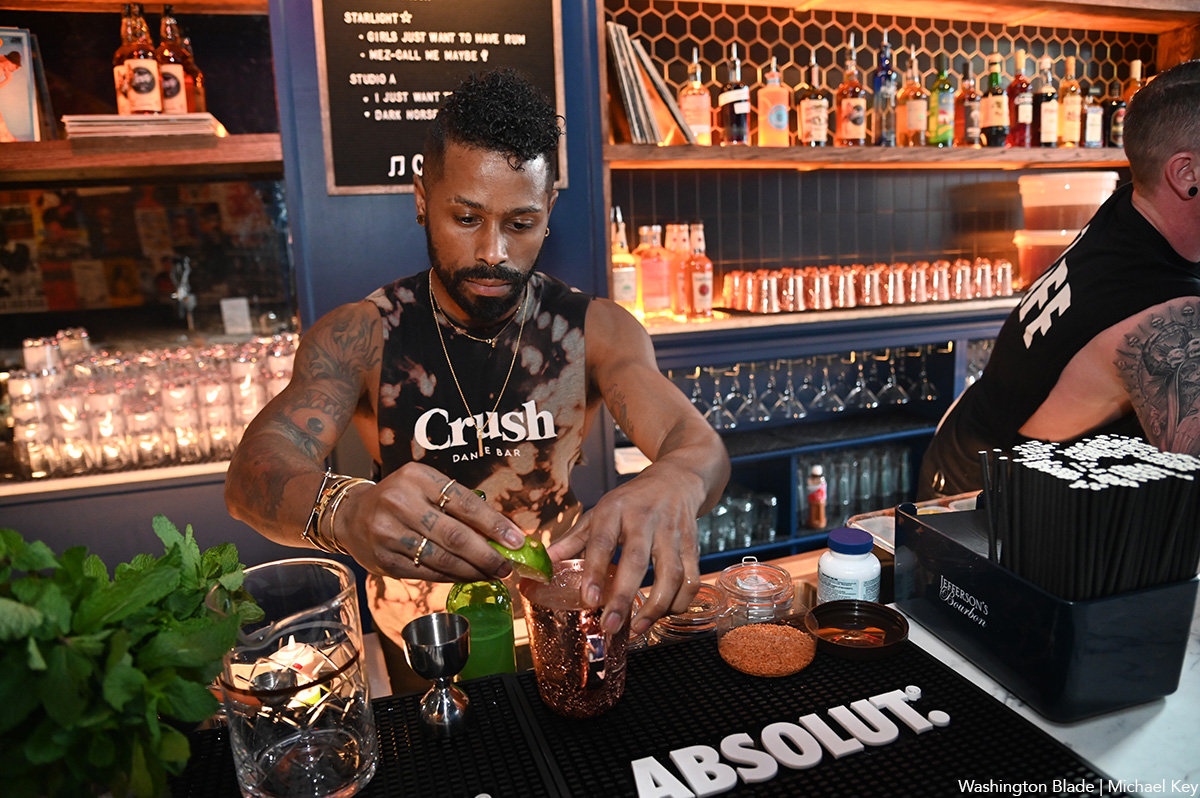
The new LGBTQ venue Crush held a party for friends, family and close supporters on Tuesday. For more information on future events at Crush, go to their Instagram page @crushbardc.
(Washington Blade photos by Michael Key)
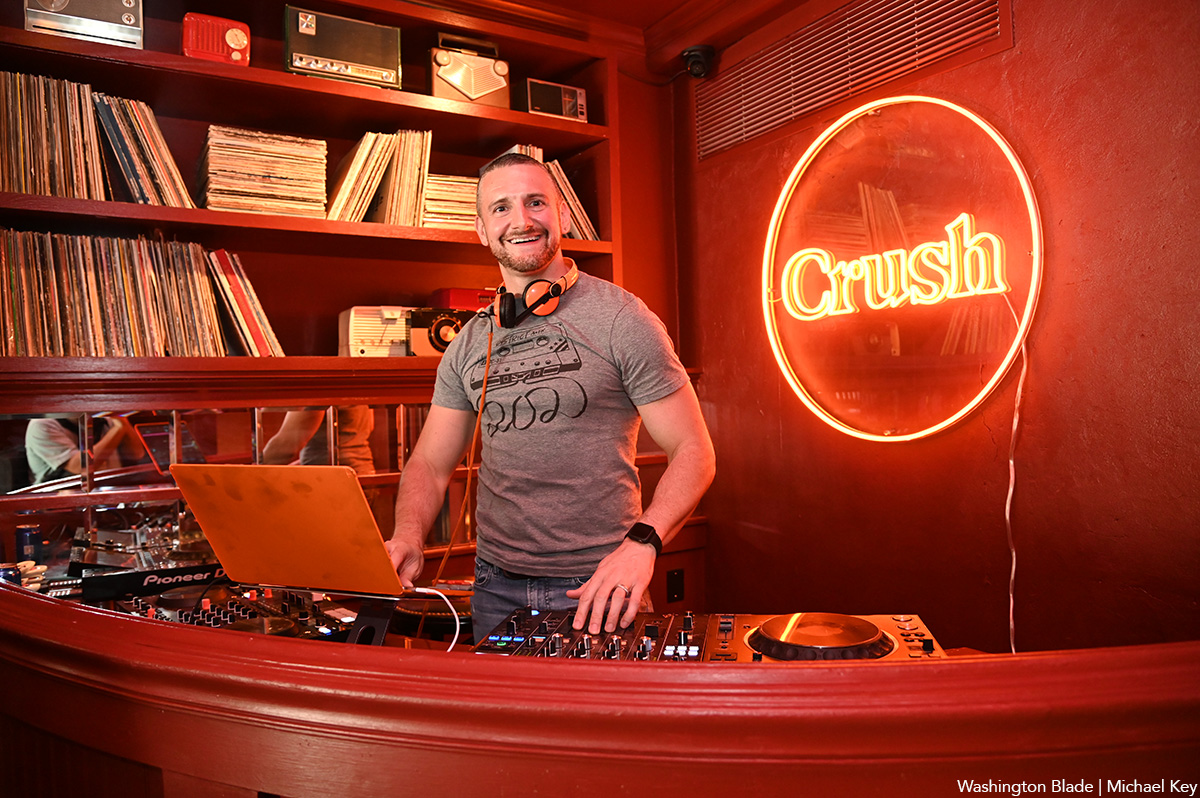
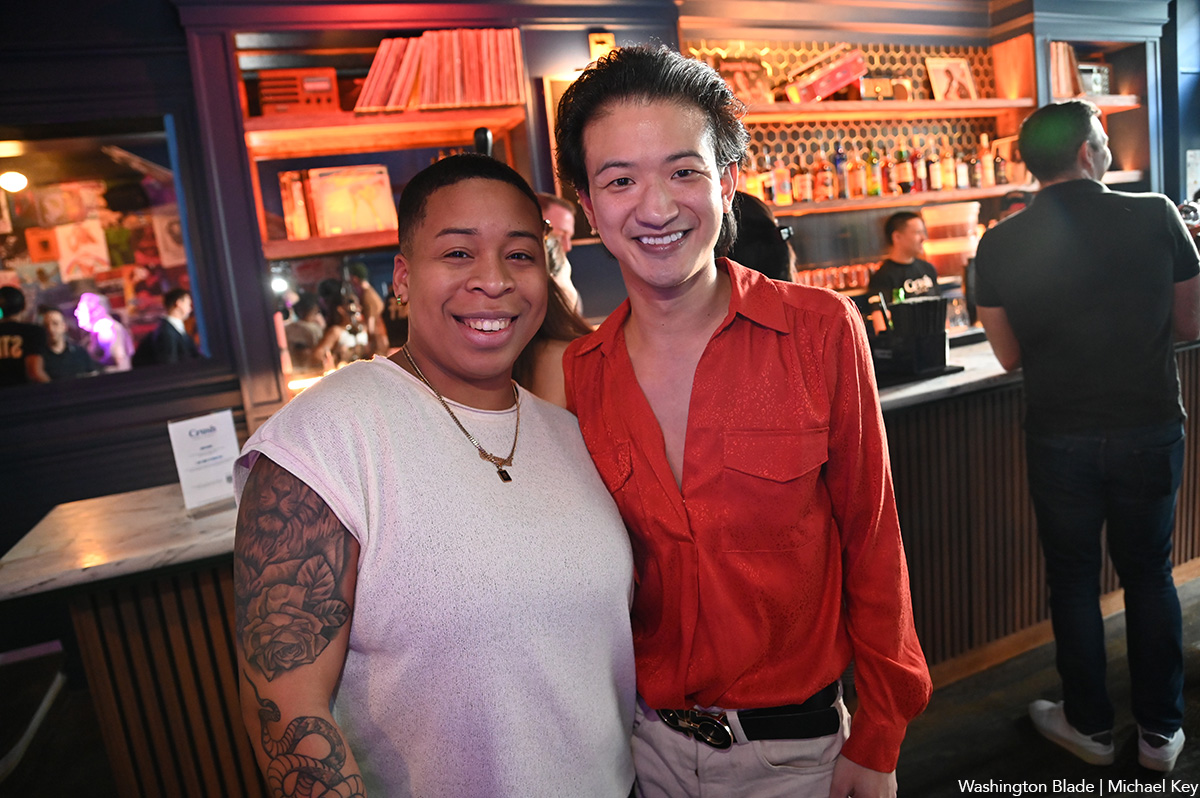
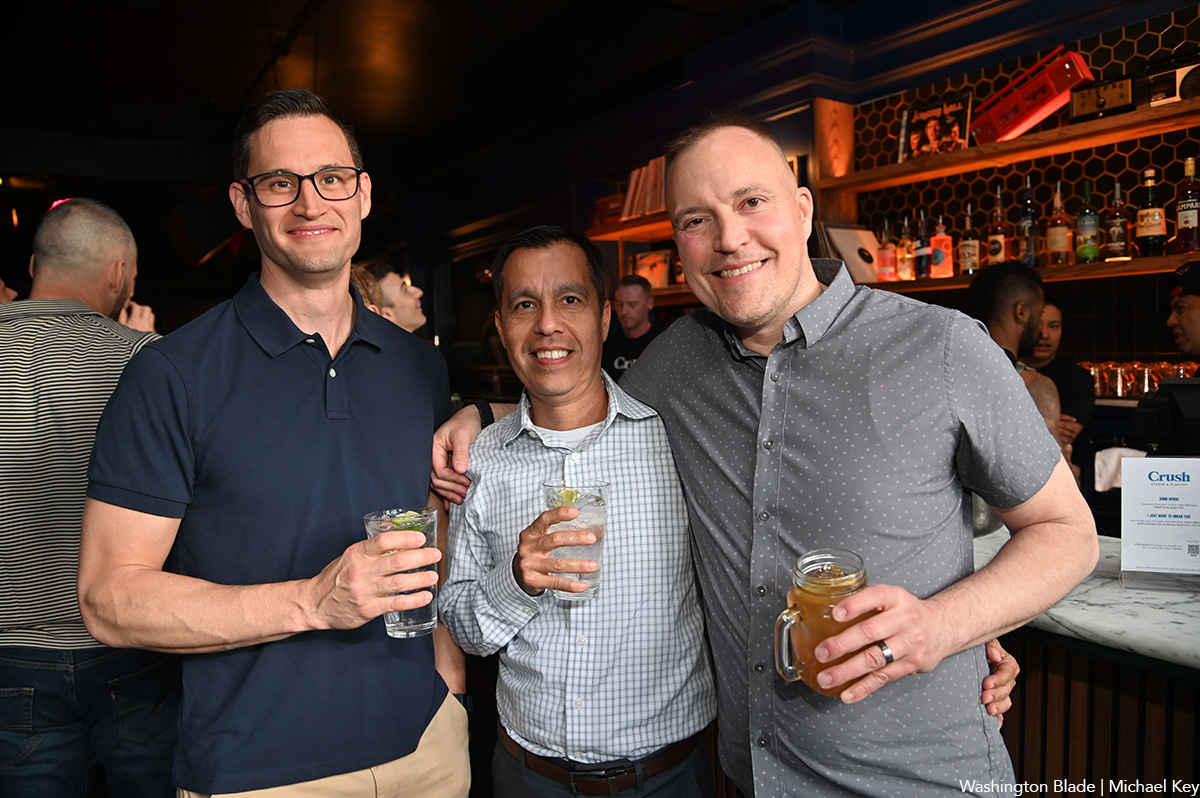
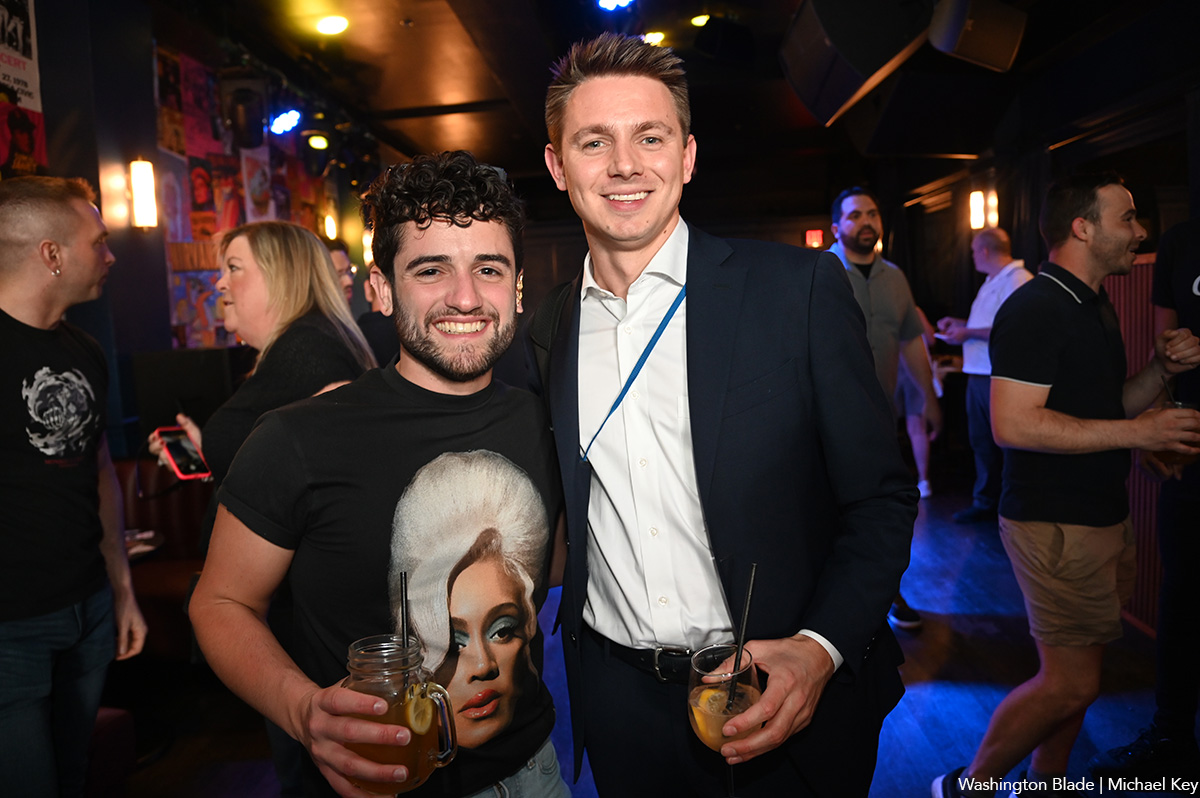
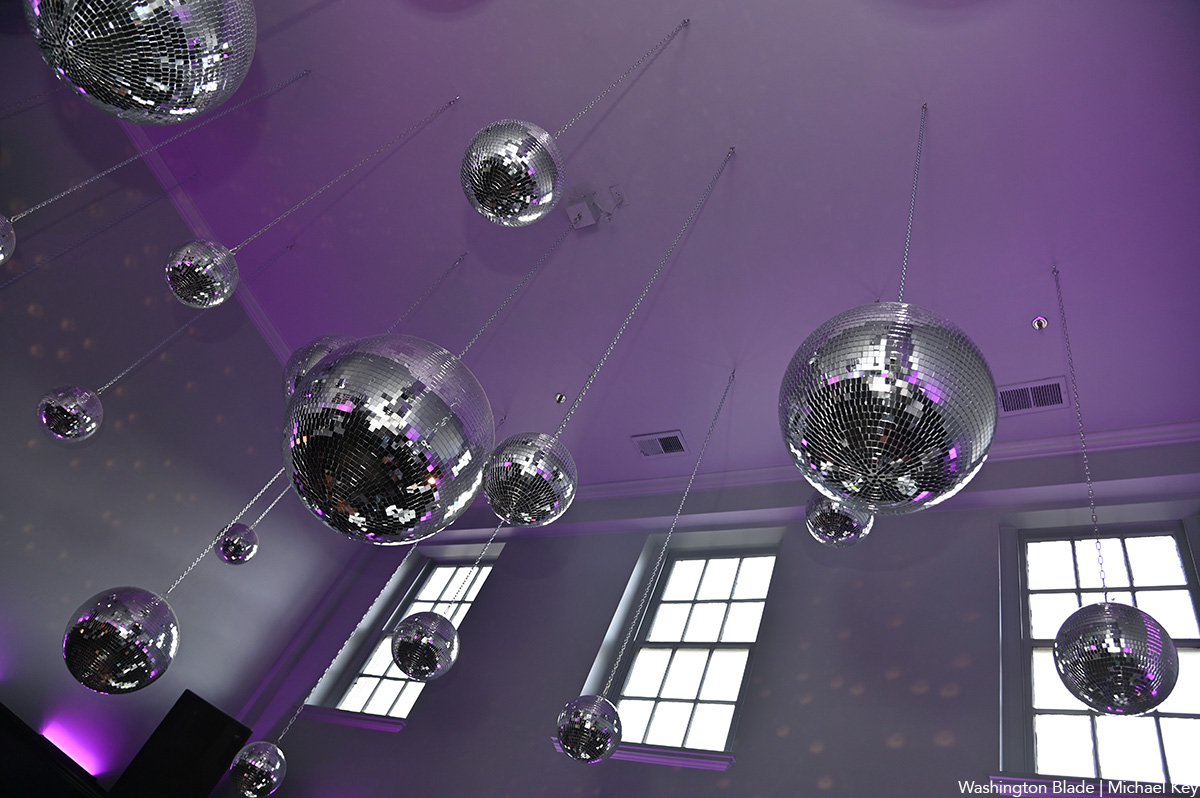
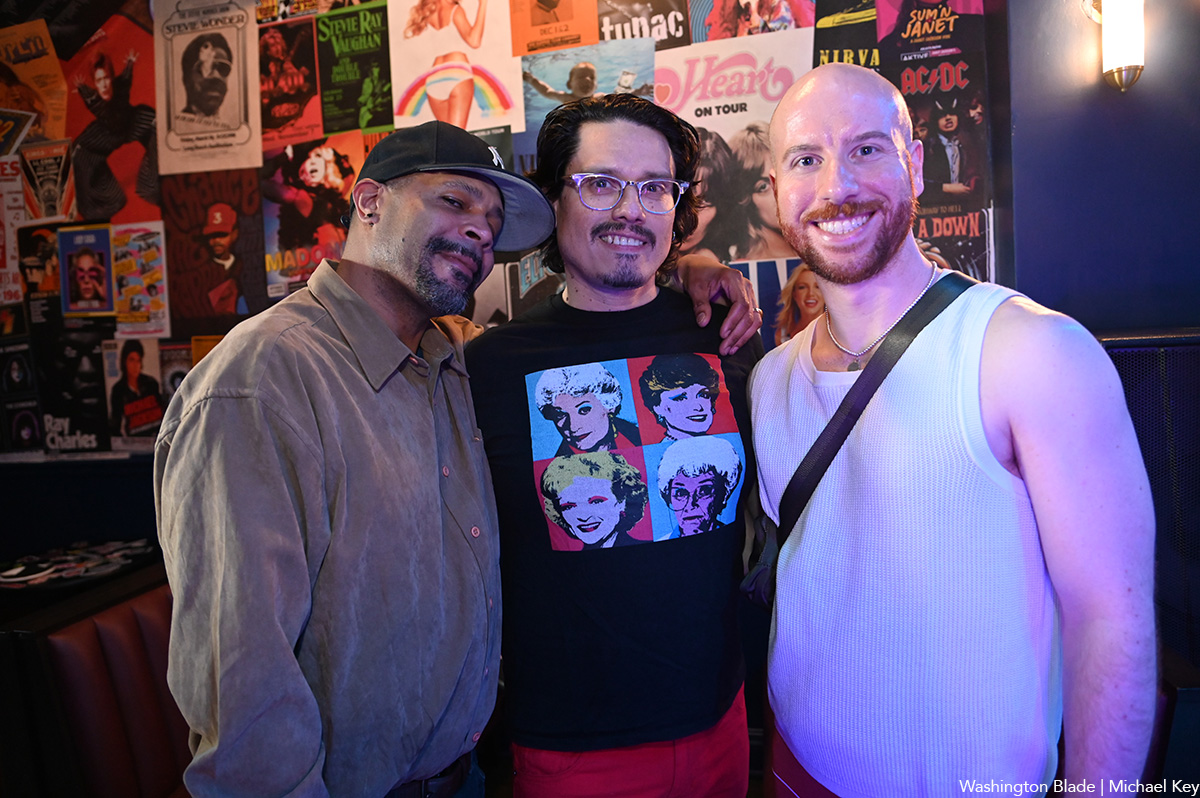
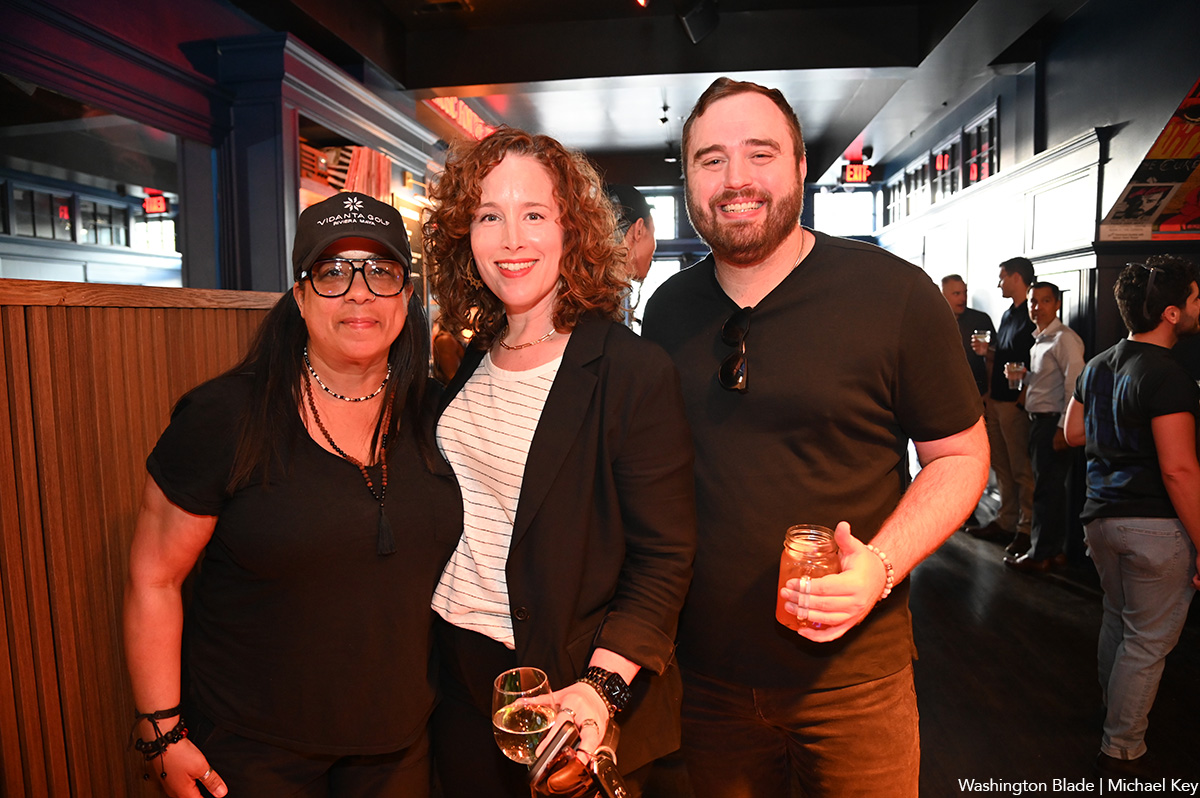
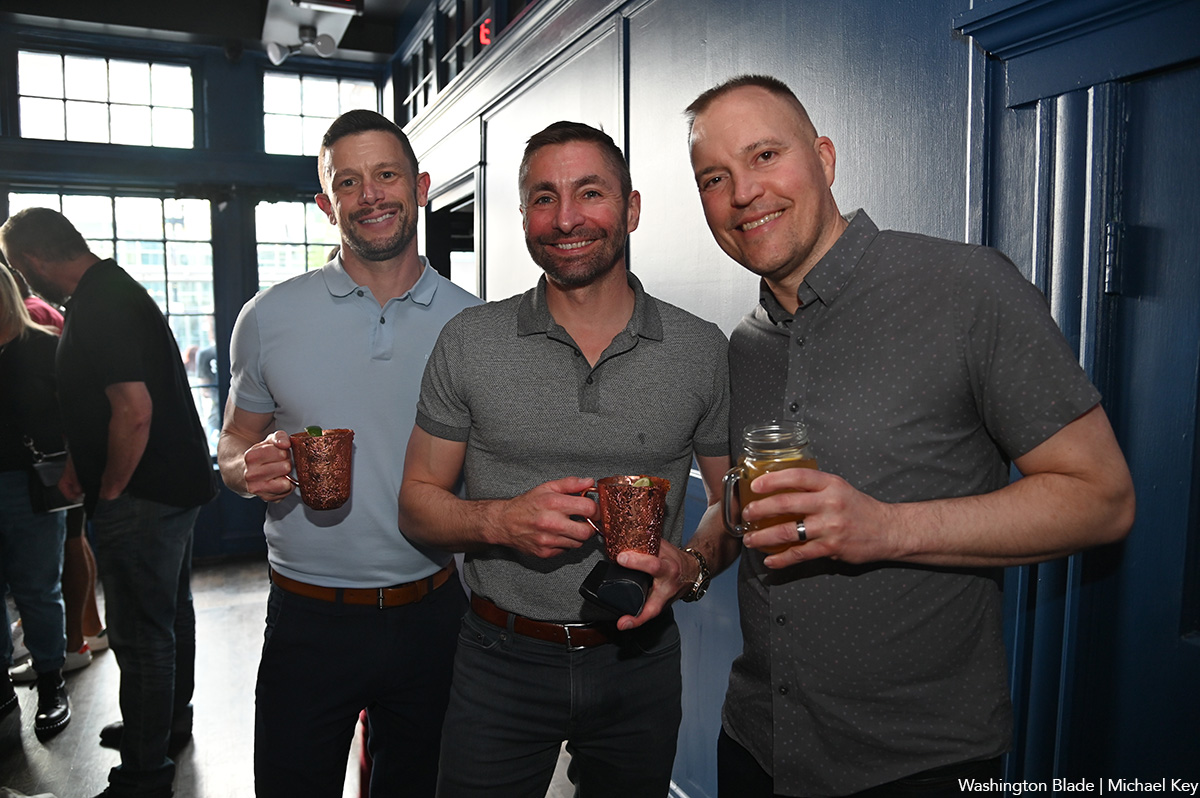

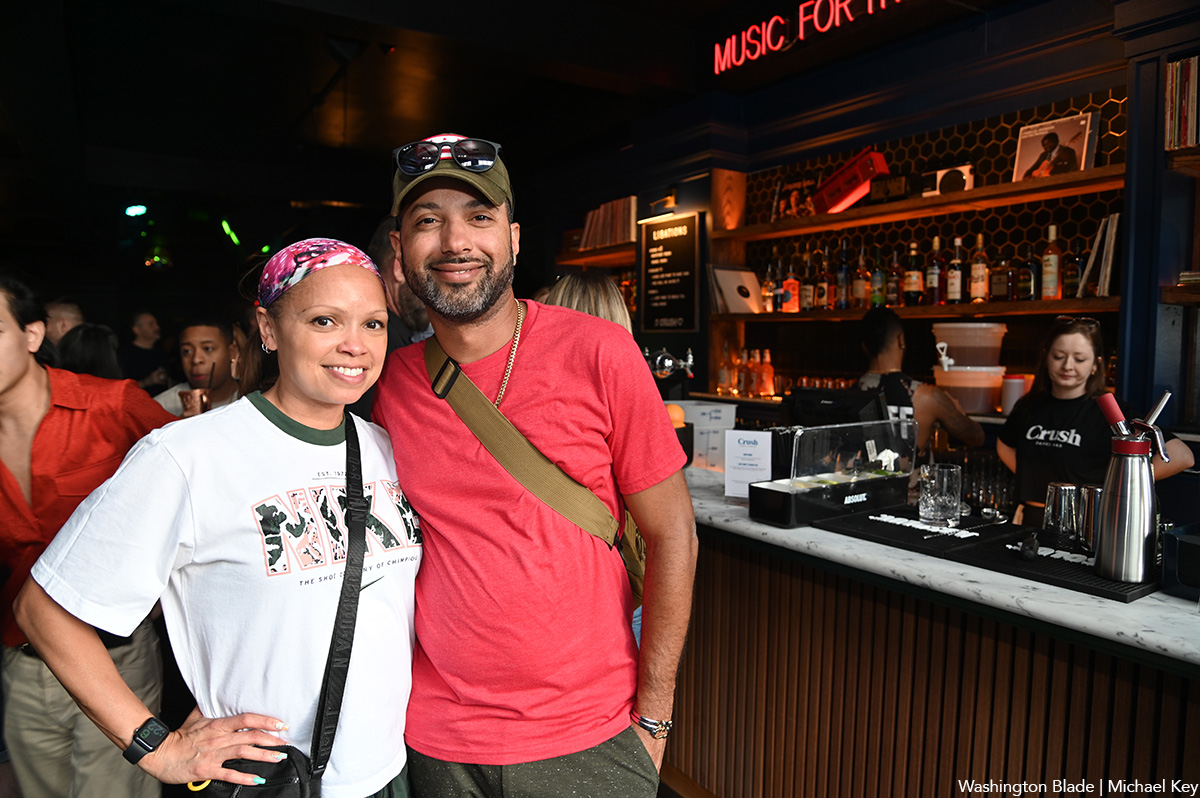
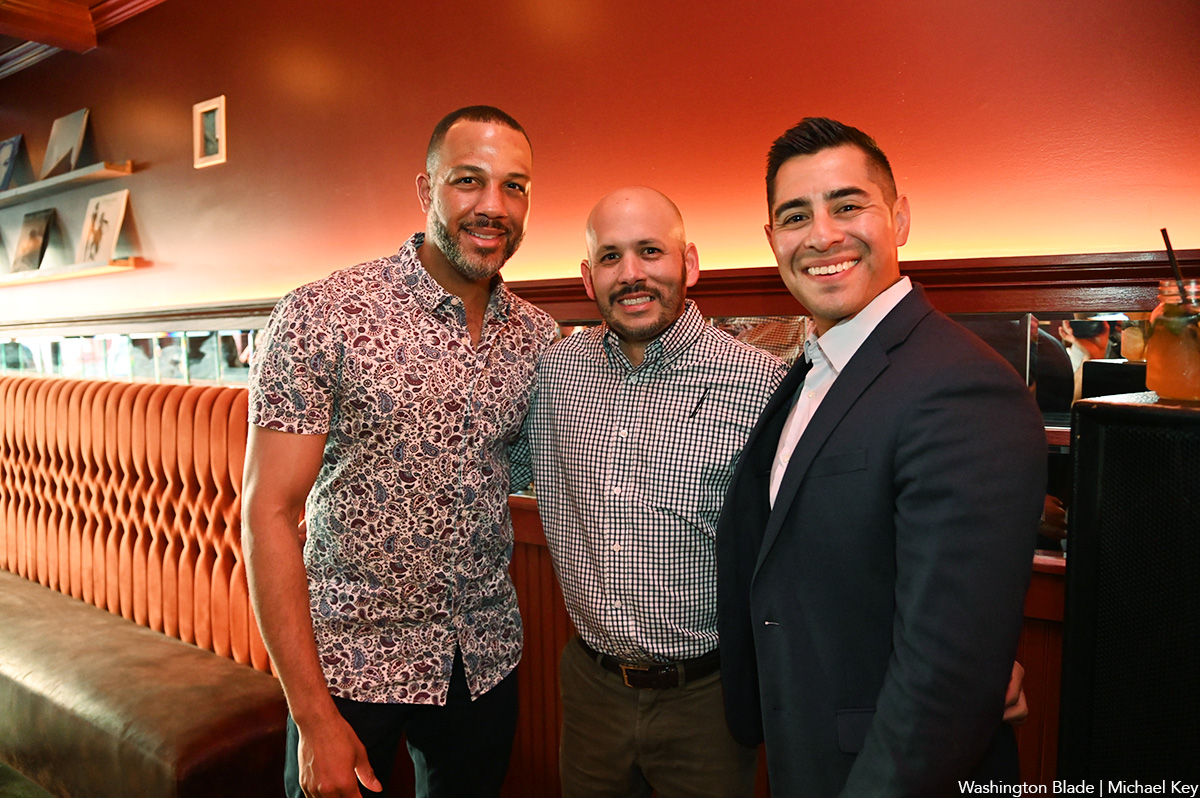
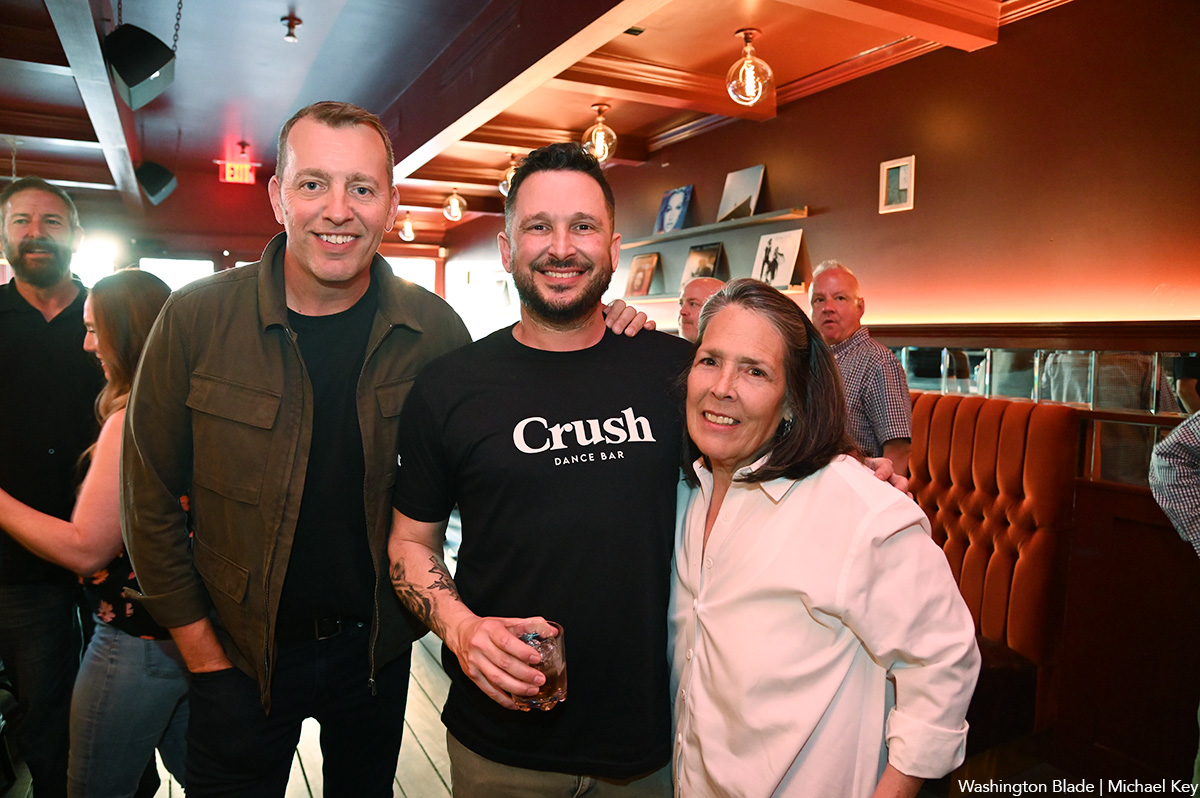
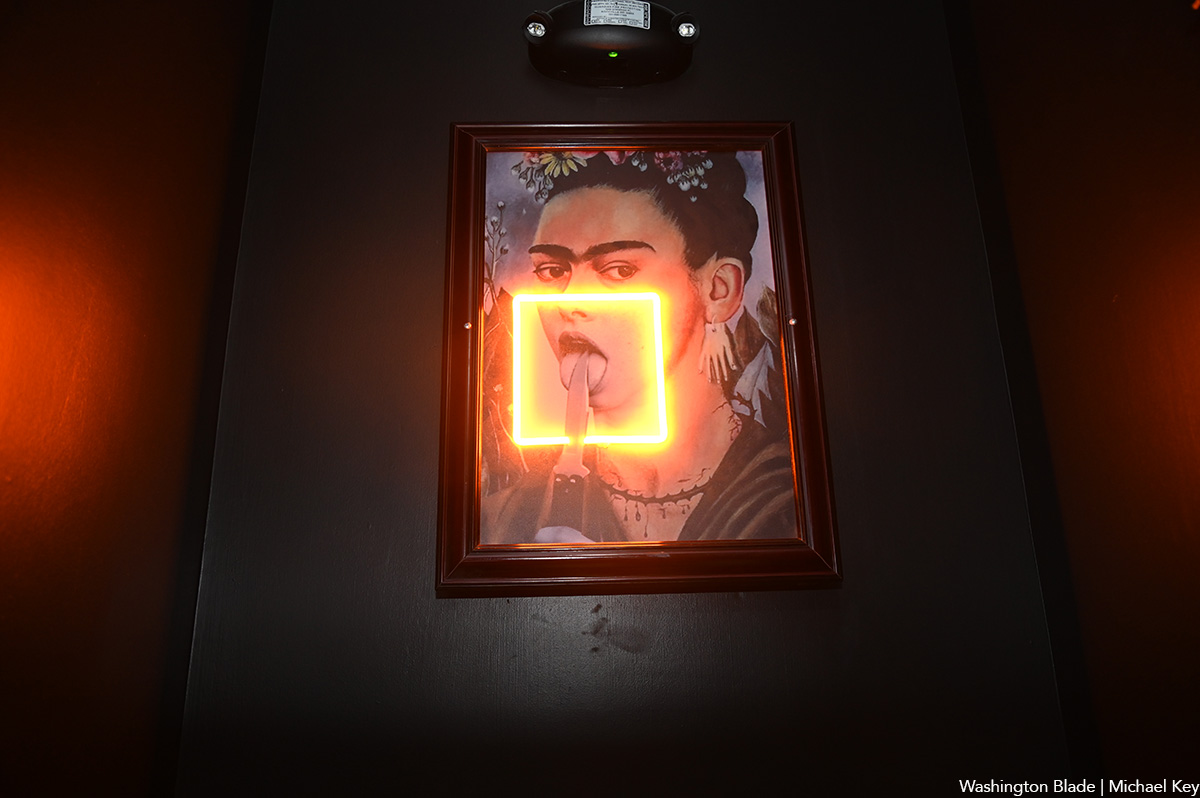
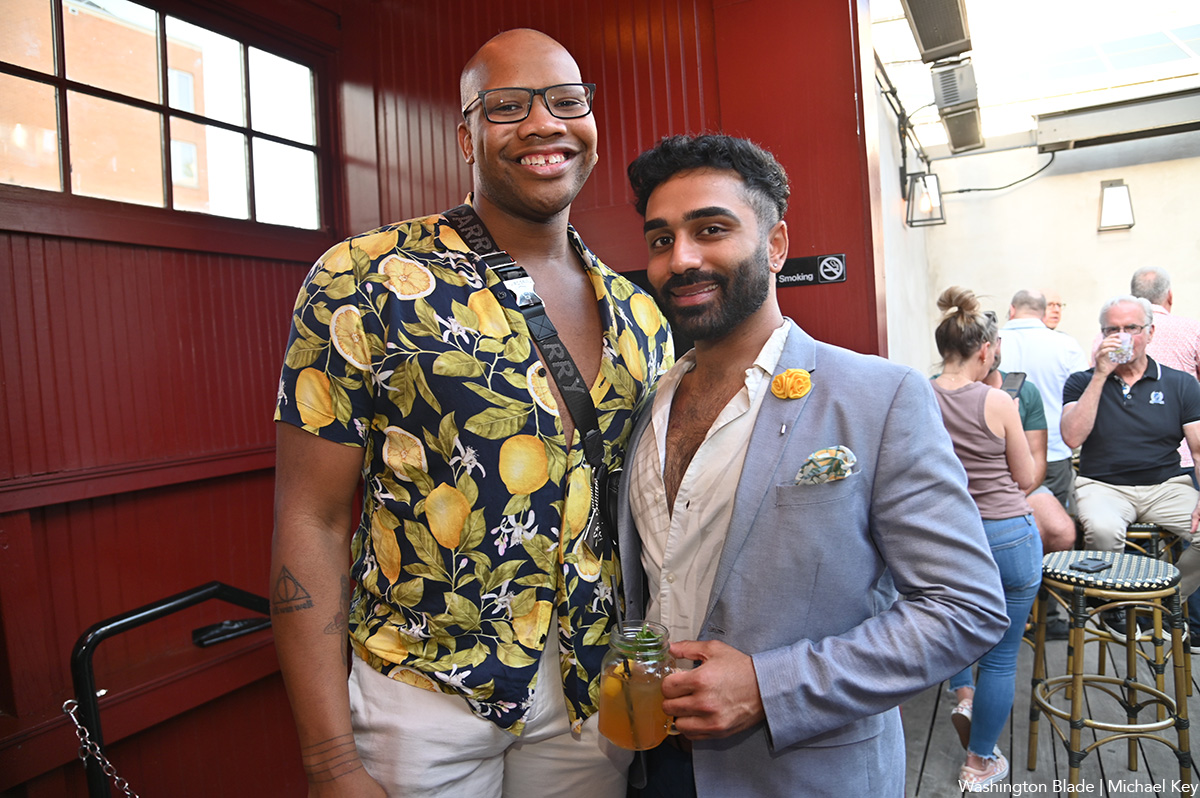
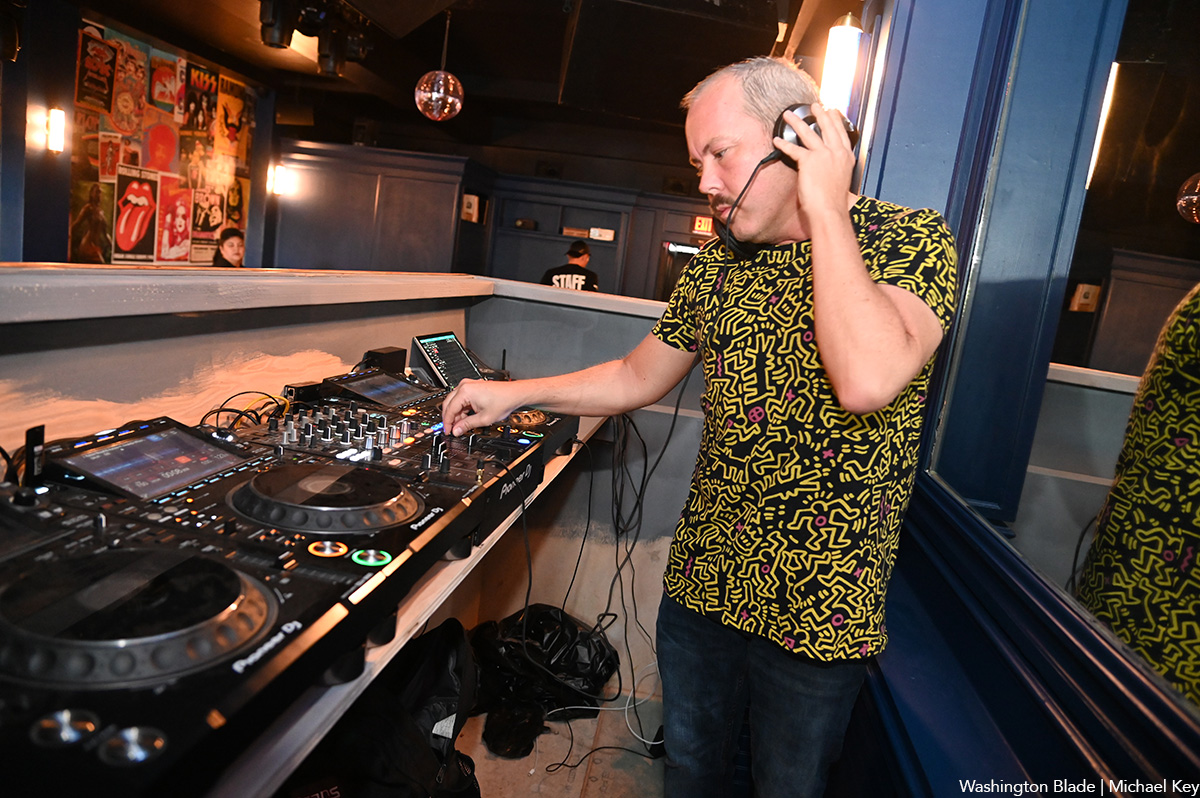
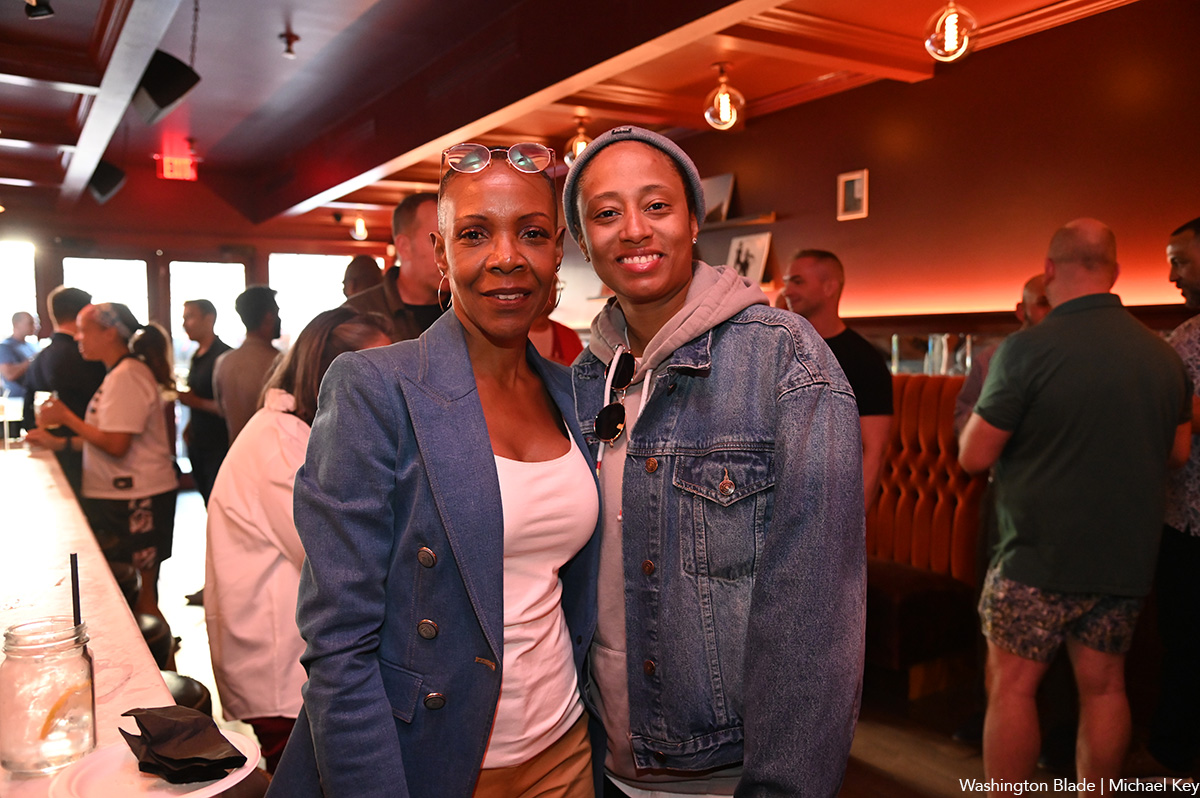
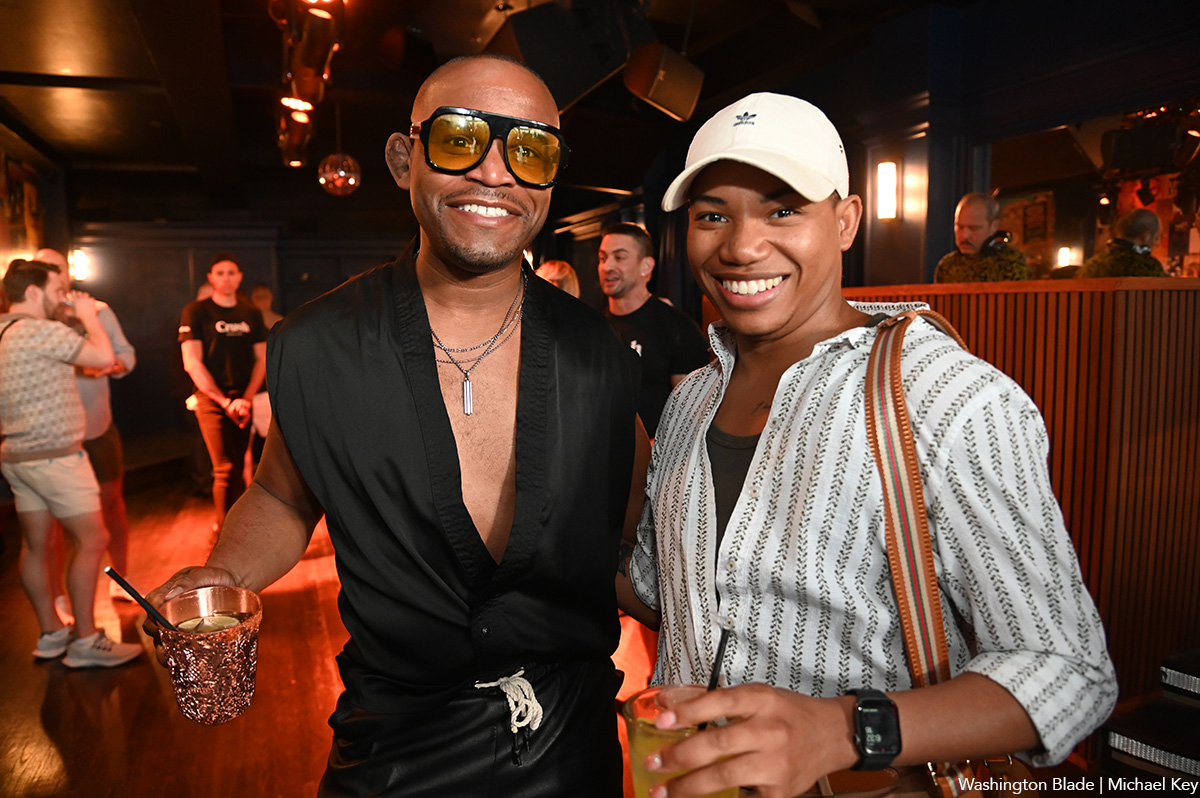
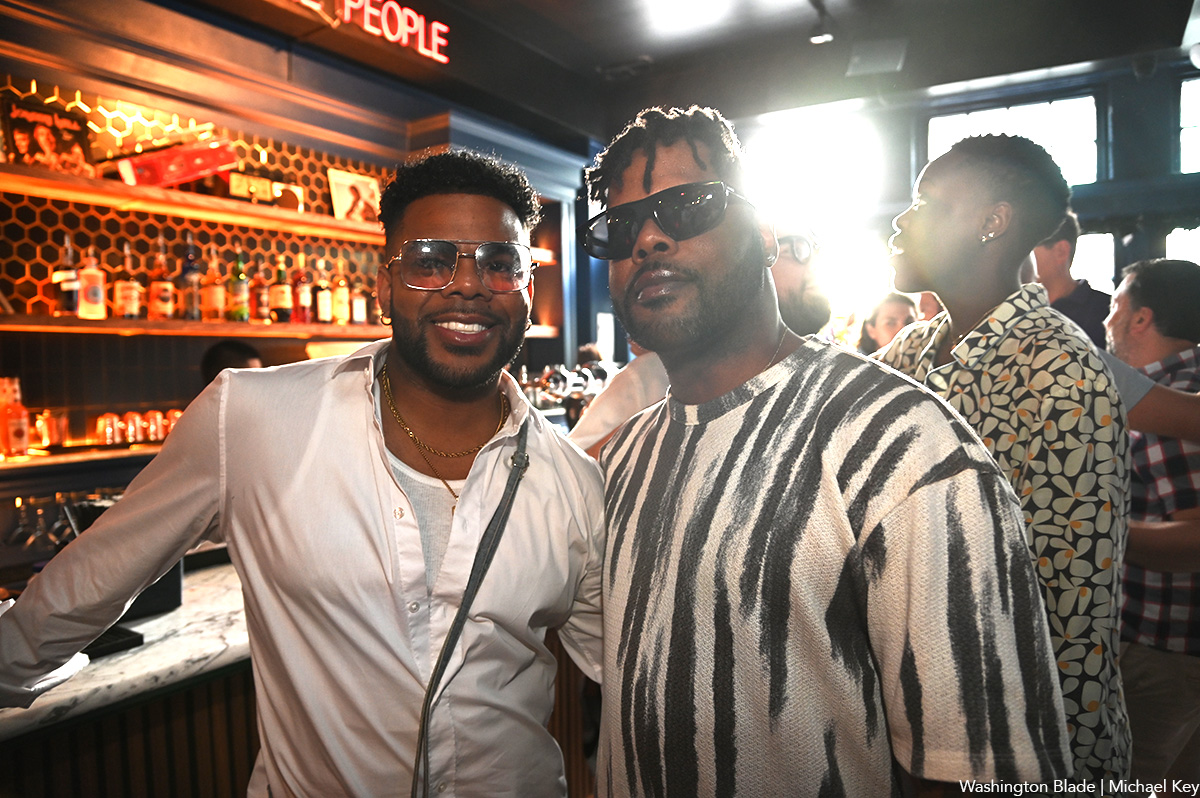
a&e features
What to expect at the 2024 National Cannabis Festival
Wu-Tang Clan to perform; policy discussions also planned

(Editor’s note: Tickets are still available for the National Cannabis Festival, with prices starting at $55 for one-day general admission on Friday through $190 for a two-day pass with early-entry access. The Washington Blade, one of the event’s sponsors, will host a LGBTQIA+ Lounge and moderate a panel discussion on Saturday with the Mayor’s Office of LGBTQ Affairs.)
With two full days of events and programs along with performances by Wu-Tang Clan, Redman, and Thundercat, the 2024 National Cannabis Festival will be bigger than ever this year.
Leading up to the festivities on Friday and Saturday at Washington, D.C.’s RFK Stadium are plenty of can’t-miss experiences planned for 420 Week, including the National Cannabis Policy Summit and an LGBTQ happy hour hosted by the District’s Black-owned queer bar, Thurst Lounge (both happening on Wednesday).
On Tuesday, the Blade caught up with NCF Founder and Executive Producer Caroline Phillips, principal at The High Street PR & Events, for a discussion about the event’s history and the pivotal political moment for cannabis legalization and drug policy reform both locally and nationally. Phillips also shared her thoughts about the role of LGBTQ activists in these movements and the through-line connecting issues of freedom and bodily autonomy.
After D.C. residents voted to approve Initiative 71 in the fall of 2014, she said, adults were permitted to share cannabis and grow the plant at home, while possession was decriminalized with the hope and expectation that fewer people would be incarcerated.
“When that happened, there was also an influx of really high-priced conferences that promised to connect people to big business opportunities so they could make millions in what they were calling the ‘green rush,'” Phillips said.
“At the time, I was working for Human Rights First,” a nonprofit that was, and is, engaged in “a lot of issues to do with world refugees and immigration in the United States” — so, “it was really interesting to me to see the overlap between drug policy reform and some of these other issues that I was working on,” Phillips said.
“And then it rubbed me a little bit the wrong way to hear about the ‘green rush’ before we’d heard about criminal justice reform around cannabis and before we’d heard about people being let out of jail for cannabis offenses.”
“As my interests grew, I realized that there was really a need for this conversation to happen in a larger way that allowed the larger community, the broader community, to learn about not just cannabis legalization, but to understand how it connects to our criminal justice system, to understand how it can really stimulate and benefit our economy, and to understand how it can become a wellness tool for so many people,” Phillips said.
“On top of all of that, as a minority in the cannabis space, it was important to me that this event and my work in the cannabis industry really amplified how we could create space for Black and Brown people to be stakeholders in this economy in a meaningful way.”

“Since I was already working in event production, I decided to use those skills and apply them to creating a cannabis event,” she said. “And in order to create an event that I thought could really give back to our community with ticket prices low enough for people to actually be able to attend, I thought a large-scale event would be good — and thus was born the cannabis festival.”
D.C. to see more regulated cannabis businesses ‘very soon’
Phillips said she believes decriminalization in D.C. has decreased the number of cannabis-related arrests in the city, but she noted arrests have, nevertheless, continued to disproportionately impact Black and Brown people.
“We’re at a really interesting crossroads for our city and for our cannabis community,” she said. In the eight years since Initiative 71 was passed, “We’ve had our licensed regulated cannabis dispensaries and cultivators who’ve been existing in a very red tape-heavy environment, a very tax heavy environment, and then we have the unregulated cannabis cultivators and cannabis dispensaries in the city” who operate via a “loophole” in the law “that allows the sharing of cannabis between adults who are over the age of 21.”
Many of the purveyors in the latter group, Phillips said, “are looking at trying to get into the legal space; so they’re trying to become regulated businesses in Washington, D.C.”
She noted the city will be “releasing 30 or so licenses in the next couple of weeks, and those stores should be coming online very soon” which will mean “you’ll be seeing a lot more of the regulated stores popping up in neighborhoods and hopefully a lot more opportunity for folks that are interested in leaving the unregulated space to be able to join the regulated marketplace.”
National push for de-scheduling cannabis
Signaling the political momentum for reforming cannabis and criminal justice laws, Wednesday’s Policy Summit will feature U.S. Sens. Raphael Warnock (D-Ga.), Jeff Merkley (D-Ore.), Elizabeth Warren (D-Mass.), and Chuck Schumer (D-N.Y.), the Senate majority leader.
Also representing Capitol Hill at the Summit will be U.S. Congresswoman Eleanor Holmes Norton (D-D.C.) and U.S. Reps. Earl Blumenauer (D-Ore.) and Barbara Lee (D-Calif.) — who will be receiving the Supernova Women Cannabis Champion Lifetime Achievement Award — along with an aide to U.S. Rep. David Joyce (R-Ohio).
Nationally, Phillips said much of the conversation around cannabis concerns de-scheduling. Even though 40 states and D.C. have legalized the drug for recreational and/or medical use, marijuana has been classified as a Schedule I substance since the Controlled Substances Act was passed in 1971, which means it carries the heftiest restrictions on, and penalties for, its possession, sale, distribution, and cultivation.
The U.S. Department of Health and Human Services formally requested the drug be reclassified as a Schedule III substance in August, which inaugurated an ongoing review, and in January a group of 12 Senate Democrats sent a letter to the Biden-Harris administration’s Drug Enforcement Administration urging the agency to de-schedule cannabis altogether.
Along with the Summit, Phillips noted that “a large contingent of advocates will be coming to Washington, D.C. this week to host a vigil at the White House and to be at the festival educating people” about these issues. She said NCF is working with the 420 Unity Coalition to push Congress and the Biden-Harris administration to “move straight to de-scheduling cannabis.”
“This would allow folks who have been locked up for cannabis offenses the chance to be released,” she said. “It would also allow medical patients greater access. It would also allow business owners the chance to exist without the specter of the federal government coming in and telling them what they’re doing is wrong and that they’re criminals.”
Phillips added, however, that de-scheduling cannabis will not “suddenly erase” the “generations and generations of systemic racism” in America’s financial institutions, business marketplace, and criminal justice system, nor the consequences that has wrought on Black and Brown communities.
An example of the work that remains, she said, is making sure “that all people are treated fairly by financial institutions so that they can get the funding for their businesses” to, hopefully, create not just another industry, but “really a better industry” that from the outset is focused on “equity” and “access.”
Policy wonks should be sure to visit the festival, too. “We have a really terrific lineup in our policy pavilion,” Phillips said. “A lot of our heavy hitters from our advocacy committee will be presenting programming.”
“On Saturday there is a really strong federal marijuana reform panel that is being led by Maritza Perez Medina from the Drug Policy Alliance,” she said. “So that’s going to be a terrific discussion” that will also feature “representation from the Veterans Cannabis Coalition.”
“We also have a really interesting talk being led by the Law Enforcement Action Partnership about conservatives, cops, and cannabis,” Phillips added.
Cannabis and the LGBTQ community
“I think what’s so interesting about LGBTQIA+ culture and the cannabis community are the parallels that we’ve seen in the movements towards legalization,” Phillips said.
The fight for LGBTQ rights over the years has often involved centering personal stories and personal experiences, she said. “And that really, I think, began to resonate, the more that we talked about it openly in society; the more it was something that we started to see on television; the more it became a topic in youth development and making sure that we’re raising healthy children.”
Likewise, Phillips said, “we’ve seen cannabis become more of a conversation in mainstream culture. We’ve heard the stories of people who’ve had veterans in their families that have used cannabis instead of pharmaceuticals, the friends or family members who’ve had cancer that have turned to CBD or THC so they could sleep, so they could eat so they could get some level of relief.”
Stories about cannabis have also included accounts of folks who were “arrested when they were young” or “the family member who’s still locked up,” she said, just as stories about LGBTQ people have often involved unjust and unnecessary suffering.
Not only are there similarities in the socio-political struggles, Phillips said, but LGBTQ people have played a central role pushing for cannabis legalization and, in fact, in ushering in the movement by “advocating for HIV patients in California to be able to access cannabis’s medicine.”
As a result of the queer community’s involvement, she said, “the foundation of cannabis legalization is truly patient access and criminal justice reform.”
“LGBTQIA+ advocates and cannabis advocates have managed to rein in support of the majority of Americans for the issues that they find important,” Phillips said, even if, unfortunately, other movements for bodily autonomy like those concerning issues of reproductive justice “don’t see that same support.”
-

 Africa4 days ago
Africa4 days agoCongolese lawmaker introduces anti-homosexuality bill
-

 World4 days ago
World4 days agoOut in the World: LGBTQ news from Europe and Asia
-

 District of Columbia13 hours ago
District of Columbia13 hours agoReenactment of first gay rights picket at White House draws interest of tourists
-

 District of Columbia4 days ago
District of Columbia4 days agoReenactment of first gay rights picket at White House set for April 17










